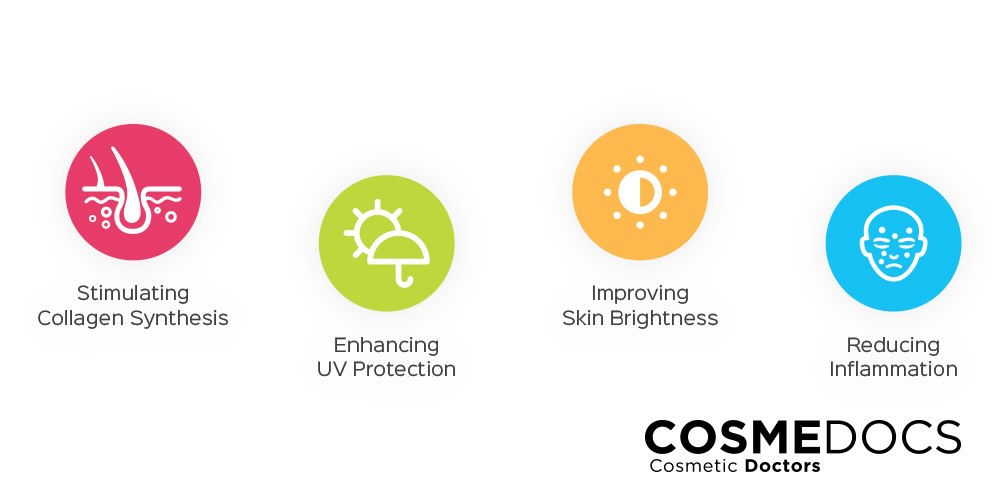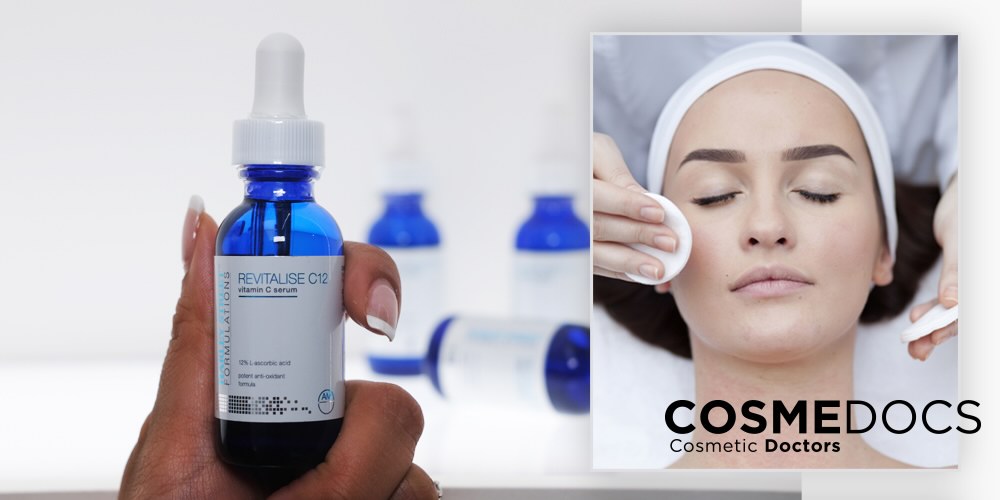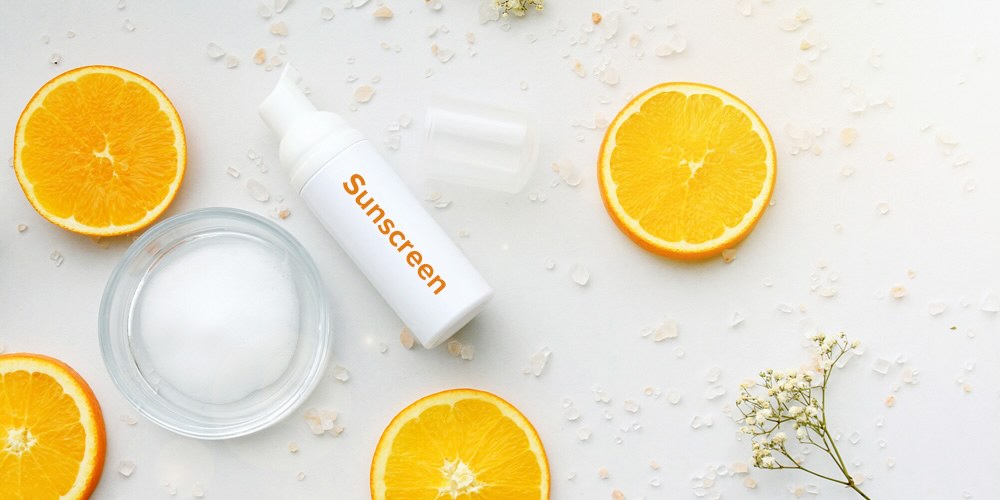
Vitamin C Benefits: Add It To Your Skincare For A Glow From Within!
Why You Need Vitamin C In Your Skincare
You can research any celebrity’s skincare routine and you will most definitely encounter the use of vitamin C. Why? Because vitamin C benefits are ample and far ranging.
As a fundamental ingredient in your skin and general health, this vitamin abides by our core principle: don’t apply on your face things that you can’t procure naturally.
Vitamin C is one of the most important ingredients to include in your diet and your skin care regimen because it is essential to keep our bodies and skin healthy.
Since we can’t produce it naturally in our bodies, this means that we need to constantly obtain and consume it from a diet or through supplements in order to maintain the healthy amounts.
At the same time, it has a short activity period which requires continual provision.
This means that you need to keep procuring your body with enough amount of Vitamin C to ensure that you stay healthy.
What Are The Vitamin C Benefits?
For starters, vitamin C is a powerful antioxidant responsible for the neutralization of free radicals.
These free radicals can induce premature aging of the cells and even mutations highly associated with cancerous cells.
The most encompassing description of all the vitamin C benefits refers to the regenerative and repairing functions.
This potent vitamin positively impacts uneven skin tones, post acne scars, fine lines, wrinkles, or and overall plain texture, conferring the skin a radiant, uniform glow.
The antioxidative functions of vitamin C are the most defining, but not limiting, characteristics of this vitamin.
Just as we help our body regenerate from the inside by consuming antioxidant rich foods, we also help our skin fight off free radicals from the outside, with the use of topical products.
The Main Vitamin C Benefits Are:
- It prompts and increases the production of collagen and elastin, which are protein fibers responsible with skin’s elasticity and healing process.
- By inhibiting melanin production, it reduces pigmentation in the skin that leads to the formation of discolorations and unevenly pigmented patches.
- It is an anti inflammatory product, which makes it an essential element in combating post-acne skin damage.
The Many Roles Of Vitamin C
Most of the time Vitamin C plays a fundamental role in building and strengthening connective tissues and vascular tissues.
Connective tissues like collagen maintain the flexibility and the elasticity of the skin.
As a result, these fortified connective tissues render a tight and firm aspect of the skin.
Additionally, it improves the health of vascular tissues that make up the different blood vessels.
This means that there will be more food and oxygen supply to your different organs including your skin.
By the same token, lack of vitamin C will affect wound healing and will lead to premature aging symptoms because of the skin lacking nourishment.
Finally, vitamin C plays a significant role in the processing of folic acid and different hormones in the body.
Vitamin C Benefits In Skincare

Vitamin C benefits the health of your skin and it also helps with preventive measures to fight off inflammation that can cause breakouts and acne.
It prevents the serious side effects of sun exposure especially if it is included in the products applied before and after you spend time in the sun (more on this later).
Vitamin C also boosts the formation of collagen in the body.
Collagen needs high levels of vitamin C and iron in order to create healthy tissue that would allow the skin to stay flexible and young.
Without its benefit effects on the skin, the collagen in the body would start forming abnormal tissues that can lead to the development of skin lesions and fragility.
As a result, the skin’s aspect gets dull, lusterless and unrested.
Vitamin C Is A Natural Skin Brightener
While it doesn’t change the color or undertones of your skin, it effectively inhibits the formation of melanin.
Melanin is the substance that causes dark spots, discoloration and freckles in your skin.
All skin tones except albinos will have a degree of melanin.
When the skin is irritated in any way, it can start to produce melanin excessively which causes hyperpigmentation and the formation of unaesthetic dark spots.
Vitamin C Works With Vitamin E To Fight Off Free Radicals
After fighting off a single free radical, a molecule of vitamin E will become ineffective.
Vitamin C will boost its effectiveness enabling it to fight off more free radicals.
That is why most anti aging products would contain Vitamin E and Vitamin C together.
Natural Exfoliating Proprieties
Now, don’t imagine the it would give you a chemical peel or that it works similarly to AHA or BHAs products.
But it will provide a mild exfoliation that would boost the appearance of your skin and make it look brighter and cleaner.

Moreover, it also helps with the synthesis of ceramide which is a key factor in creating a defensive skin barrier and will help with a dry and flaking complexion.
It Comes In All Shapes And Sizes

Inversely, it can lead to serious skin irritation initially when formulated at strong concentrations in serums with low pH.
The general recommendation is to always incorporate it gradually and cumulatively into your skincare regimen, and always perform a patch test prior to the actual application.
Pure Vitamin C, also known under the name of ascorbic acid, can be found in most of skin care products sometimes called L ascorbic acid where the “L” indicates the chirality of the vitamin’s molecule.
Ascorbic acid is the most stable and operative form of vitamin c in skincare formulations.
This is a water soluble acid and it is what helps in the formation of the collagen inside the cells.
However, it is more common to see salt forms or esters forms of Ascorbic acid.
Salts will be water soluble while esters are oil soluble.
Which Form Should You Use?
The pure form of Vitamin C oxidizes really fast if exposed to light or air.
This event can actually prompt the production of free radicals instead of preventing their harmful effects.
In order to be stabilized and to increase its shelf life it is packaged in liposomes.
Sometimes it is packaged in a 2 chamber container and only becomes active only when mixed with the other ingredients.
It can be also formulated with a silicon base or get bound to another molecule.
In order to decrease the level of irritation and improve its penetrative properties.
Because Vitamin C can be really irritating, it is not recommended to use on irritated or thinning skin as it can lead to further inflammation.
The recommendation is to start with minimal concentrations such as 5%, and work your way up to 20%.
Once you notice that your skin starts building tolerance.
The process should be cumulative in order to get the most of the vitamin C benefits.
It is best to use vitamin C in the form of serums, as they prove to be more efficacious than creams or toners with regards to skin absorption.
The best form of Vitamin C is probably the THDA which penetrates the lipid layer and stays in the skin.
It has great benefits as an anti oxidant and will stay stable for more than 2 years.
MAP is another stable form of Vitamin C.
Both of these forms are more effective than the other forms of Vitamin C and this is why they are more expensive.
You will most likely find that vitamin c serums are combined to vitamin E, which increased the antioxidative powers and confers extra protection.
These two antioxidants are a power couple in combating texture imperfections and restoring the skin barrier.
Sunscreen And Vitamin C
Before any confusions, sunscreen is what?
That’s right. FUNDAMENTAL.
It is of utmost importance to use a broad spectrum sunscreen daily, indifferent of the weather.
Without it, you are effectively undermining any skin treatment that you’ve been dedicating time and energy to.
When paired with vitamin C, sunscreen’s protection against the damaging UV rays is exponentially increased.
According to research, sunscreens only protect against 55 percent of the free radicals produced by sun exposure.
Combining sunscreen with a potent topical antioxidant optimizes the protective functions against UV radiation.
How To Layer Vitamin C In Your Skincare
We recommend using vitamin C as a serum because you can apply it underneath most other skincare products.
Also, we highly suggest applying it in the AM and combined with your sunscreen, so you can be ready for the day.
Here are the steps to layering your skincare when incorporating vitamin C and sunscreen:
- Cleanse your face. Use your favorite cleanser for your skin type to ensure your face is clean.This is important so the skin can properly absorb the following treatments.
- If you usually use a toner in the AM, you can do it at this stage. This is optional and based on your individual skincare needs.
- Apply the vitamin C serum. With a few drops you can cover most of your face; if you apply in excess, make sure to cover your neck and décolletage as well.
- Follow up with your chosen moisturizer. Its heavier consistency requires application on top of thinner products, so always apply moisture on top of the other treatments.
- Finalize with a broad spectrum, 50+ sunscreen.
Remember that this process can also be intuitive:
apply the thinnest products first and the heaviest formulations last.
Vitamin C Tips
- Vitamin C oxidizes by sunlight. This means that storage is necessary in dark containers, in a cool dry place.
- If your vitamin C product has turned color and became brownish then you should throw it away.
This means that it oxidation took place and it will cause more harm to your skin than benefits. - If your skin is not so sensitive then you can use Vitamin C products especially at night. It should be applied under a moisturizer.
Takeaway
Vitamin C benefits for your skin are various and far reaching.
From anti aging functions to restorative roles, this potent antioxidant confers a healthy, tonic and rested aspect to your skin.
Use a serum based vitamin C and pair it with additional skin treatments that can further consolidate its impact, such as vitamin E.
Another way to secure the best protection and results is to never skip sunscreen application.
Note that in combination with vitamin C, its potency significantly increases.
Finally, vitamin C is an essential in the skincare community and it should never be absent from your regimen.
Apply it on a clean face and follow up with spot treatments, moisturizer of choice and sunscreen.
Layering is important so don’t get excessive.
Use small amounts and build up from there, especially if you are applying make up.
Voila, you’ve got yourself a glistening base that not only makes you radiant, but it’s indicative of health and nourishment.
How do you feel whenever you are done with your skincare routine?
Are you in the glazed donut category or the luscious diva?
Drop us a comment below and share your feelings.





















Comments are closed.